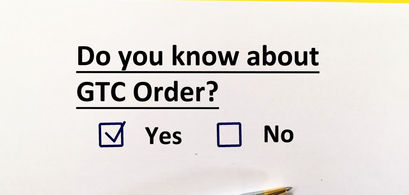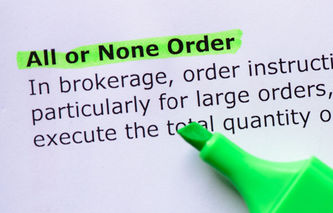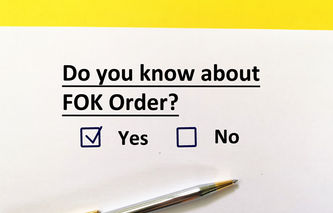Definition
The term Good-Til-Canceled refers to broker instructions to buy or sell a security at a fixed price, and the order will remain active until the investor cancels it or it is filled. From a practical standpoint, a Good-Til-Canceled order specifies the instruction will remain active even if it is not filled on the same trading day.
Explanation
A Good-Til-Canceled (GTC) order is typically placed by an investor that would like to buy or sell a security at a price that is significantly above or below its current market price. Since the order is not cancelled at the end of the trading day, a GTC order eliminates the need for the investor to place the same order daily. The order remains active until completely filled or the investor cancels the order. Partial sales or purchases are acceptable.
GTC orders will eventually expire if not canceled or filled. The exact rules will vary by brokerage house; however, the order will typically expire in 30 to 90 days. The order may also expire under certain conditions, including the announcement of a stock split or a special dividend. Investors will place GTC orders to sell securities at a price that is significantly above the current market price, or buy securities at a price that is significantly below the current market price. For example, an investor might want to sell 500 shares of stock when it reaches $50.00 per share and its current market price is $48.00. By placing a GTC order to sell 500 shares at $50.00, the investor does not have to monitor the price of the stock on a daily basis.






